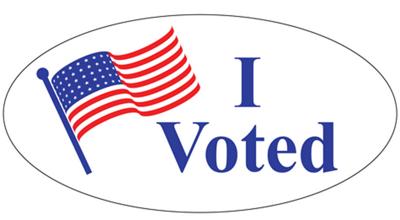California’s Gubernatorial Recall Election
Contents
California’s Gubernatorial Recall Election#
California voters have already received ballots for the September 14 recall election. Ballots show two questions:
Should Governor Gavin Newsom be recalled? (Requires a simple majority.)
If Newsom is recalled, who should replace him? (Whoever of the 46 candidates receives the most votes.)
The California Democratic Party is telling voters to:
Fill out your ballot by voting NO on the first question and leaving the second question blank.
Do not disenfrachise yourself by following this advice. Betting markets give Newsom a one in four chance of being recalled, in which case our next governor, and possibly our next senator (given the governor can appoint Senate replacements), will be determined by voters’ response to the second question.
This is a terrible system that could put someone with under 20% of the vote in charge of the world’s fifth largest economy. It needs reform, but in the meantime, abstaining doesn’t help.
That in mind, I strongly recommend voting NO on the recall.
As of this writing (August 24), I also recommend voting KEVIN PAFFRATH for the replacement, though I’m holding off on sending in my ballot in case he falls in the polls in the next three weeks. Below is why.
NO on the recall#
By far, the most comprehensive analysis of this election comes from Kyle Bogosian of eapolitics.org. Bogosian approaches elections from an Effective Altruism angle of quantifying the importance of each issue, scoring candidates on their stances, and combining it with other quantitative factors to project how much good each candidate would do. Bogosian’s election guides are exceptionally rigorous, and I recommend following him and reading his work.
Bogosian weights issues ranging from education to taxation to guns, with the top issues being animal welfare, housing, and air pollution. He also estimates the probability of Senator Dianne Feinstein’s death, and the amount of Senate years the next governor will therefore appoint (0.37), as well as candidates’ general fitness for office. I agree with about 90% of his assessments, which cover Newsom and the three top challengers: Larry Elder, Kevin Paffrath, and Kevin Faulconer. His conclusion?
Overall, Newsom gets a merit score of 0.76, Elder gets -1.34, Paffrath gets 0.48 and Faulconer gets -0.02.
Clearly, Newsom is the best of the major candidates, justifying a NO vote for the recall. But the case is stronger than these numbers suggest, because they don’t consider polling and Newsom’s likely replacement should the recall succeed.
Based on the pollster accuracy and recency of 18 polls, FiveThirtyEight estimates that California voters reject the recall by 1.2 percentage points. They also estimate that, should the recall succeed, Elder would receive 19.3% of the vote, Paffrath would receive 9.1%, Cox would receive 6.1%, and Faulconer would receive 4.8%. Participants in the PredictIt betting market consider Elder the most likely replacement for Newsom, with roughly a three in five chance, followed by Paffrath with a one in four chance and Faulconer with a one in twenty chance.1
Combining Bogosian’s estimate of each candidate’s merit score with the betting market probabilities shows that the expected score for the two recall options are:
NO: 0.76 (just Newsom’s score)
YES: -0.67 (-1.34 * 58% for Elder + 0.48 * 23% for Paffrath + -0.02 * 5% for Faulconer)
Should the recall succeed, the most likely outcome is Governor Larry Elder, the worst major candidate, and the expected outcome is significantly worse than any candidate other than a certain Elder.
Even if you may be frustrated with some aspects of Newsom’s performance, as I am, I urge you to read Bogosian’s summary to see how much worse Larry Elder would be.
KEVIN PAFFRATH as potential replacement#
Bogosian’s analysis shows that Kevin Paffrath is the strongest viable replacement, and that Larry Elder would do significant damage as governor.
As of this writing, game theory pushes toward Paffrath as well. Betting markets currently consider the replacement election a two-candidate race between Larry Elder and Kevin Paffrath. While the polls show John Cox and Kevin Faulconer trailing Paffrath, and Paffrath a fair distance behind Elder, bettors apparently believe that the two parties will consolidate around their respective front-runners.
This seems plausible to me, though in case something changes, I’m waiting to mark question two on my ballot and mail it in. If, for example, Kevin Faulconer had the best chance of beating Larry Elder, he could be worth voting for instead.
For now, Paffrath is both the strongest major candidate and the most viable candidate to keep Larry Elder out of the governor’s mansion, so Democrats should hold their nose and rally around the YouTube landlord.
I’ll update this document should my decision change, or once I send in my ballot.
- 1
As of this writing, Elder’s latest Yes price for being governor on December 31 was 25¢, Paffrath’s was 10¢, Faulconer’s was 2¢, and six others were 1¢, totaling 43¢. Elder’s probability is therefore 25/43 = 58%, and Paffrath’s is 10/43 = 23%.
